Who would have thought that honey has a long shelf life? That only means one thing: you get to enjoy big jars of this golden liquid longer without rushing to use most of it for fear of getting spoiled.
But does the long shelf life mean that it does not go bad at all?
Many people are curious about the myths and facts behind this question.
In this blog post, we have prepared what we have learned, what you ought to know about this, and whether it expires or not.
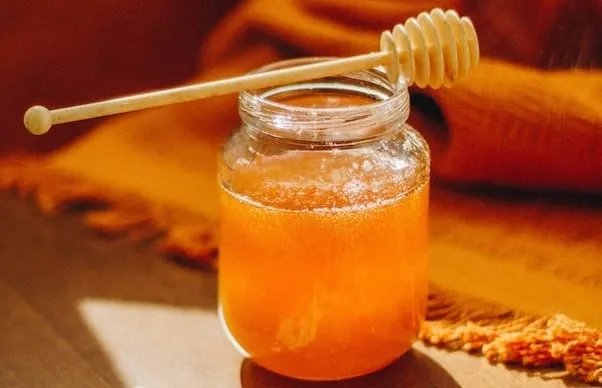
Does Honey Go Bad or Expire?
Natural and pure honey does not expire, provided that it is stored properly. Some honey jars bear an expiration or best-before date.
Past that date, does honey expire?
Some discoveries of buried honey jars have shown that it does not go bad even after a long period of time. Theories were forwarded on the reasons for its longevity in keeping its state of being consumable.
Why Raw Honey Stays Good For a Long Time
There are several reasons why honey does not go bad that easily, which we will discuss below.
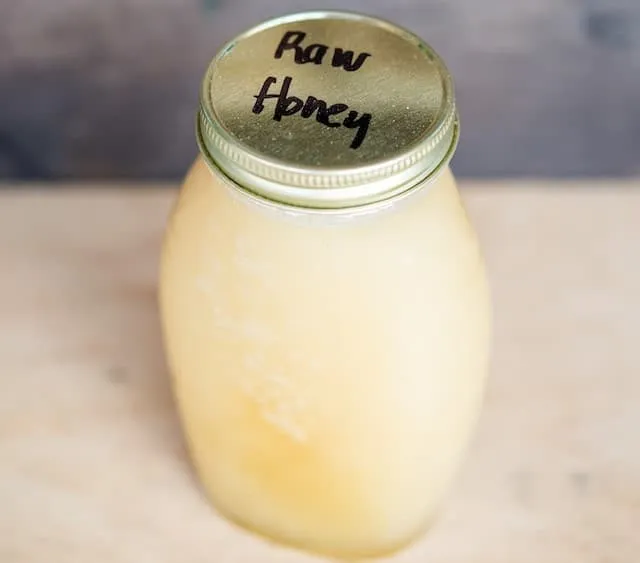
It has anti-bacterial and anti-microbial properties.
Generally, its good state is retained mainly because it has anti-bacterial and anti-microbial properties.
But can bacteria grow in honey? Yes, they can, but they would not thrive for long. The anti-bacterial and anti-microbial properties prohibit bacteria and other microbes from thriving.
It contains hydrogen peroxide.
Also, honey is known to contain hydrogen peroxide, which works to kill bacteria too. Any bacteria which would attempt to grow in your jar of golden syrup would be simply eliminated by its hydrogen peroxide content.
It has high sugar content.
Additionally, honey is composed of approximately 80% sugar compounds (glucose and sucrose) and has minimal water or moisture content. Due to this composition, the osmotic pressure is strong.
Any fungi or bacteria would dry out because of the osmotic pressure. Bacteria cannot survive in this environment, and their non-survival encourages the longevity of this golden liquid from spoiling.
It has a low pH level.
Honey’s low pH level, 4.0 on average, signifies that it is acidic. Certain bacteria, such as Salmonella, E. Coli, and Streptococcus, cannot thrive or survive in an acidic environment.
These four factors, and maybe more, affect how honey is preserved for a long period.
Can Honey Go Bad and Make You Sick?
The answer to this question is yes, and it can go bad and make a person sick. But it doesn’t go bad that easily when kept in a tightly sealed jar.
As long as you store it in a jar with a tight lid and without moisture, it is sure to go a long way.
Raw honey sometimes contains other natural elements such as honeycombs, pollen, maybe nectar, and remnants of bee enzymes.
These components often interact with some bacteria, which can benefit the latter and encourage their growth. At that point, your honey is sure to go bad. If contaminated with pollen, it may harm a person who is allergic to bee pollen.
Some honey contains a small number of microorganisms. A study has shown that spores of C. botulinum are present in small amounts in honey samples they tested.
This minimal amount, though, would not harm an adult but can harm an infant not more than a year old. It can cause infant botulism, a kind of food poisoning. Thus, it is always advised not to allow children under one year old to consume this natural product.
There are some brands that market adulterated honey. Some companies add sweeteners to pure honey to increase volume for profit. Due to the addition of these sweeteners, it is contaminated and would be prone to bacterial growth.
A diabetic person relying on honey as a natural sweetener would be affected by the addition of artificial sweeteners, which may trigger the worsening of this medical condition.
Leaving your jar open or improperly sealed may cause moisture to get inside the jar. An unsealed jar may also allow contaminants inside.
The increase in moisture and contamination may foster a perfectly appropriate place for bacteria and fungi to thrive. Bacteria and fungi in foods are some causes of stomach problems and sickness.
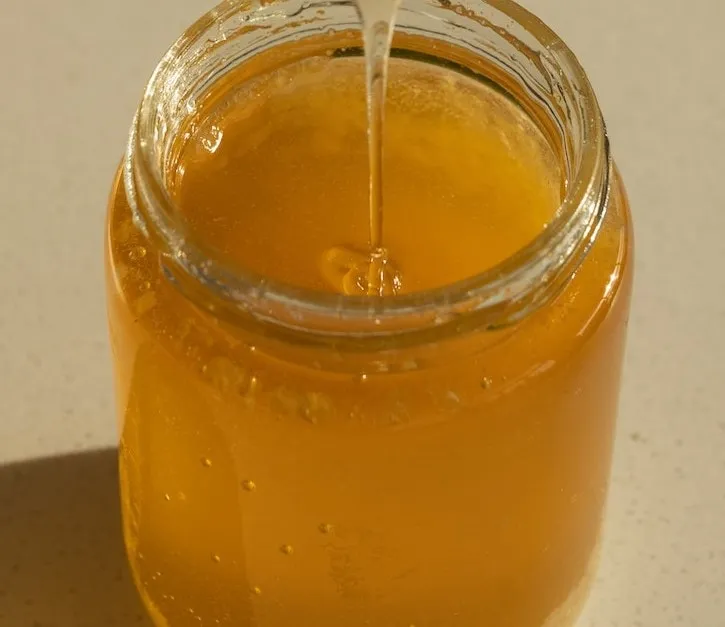
How to Store Your Honey Correctly
What and where is the best place to store honey? And how long does honey last? Storing this liquid gold correctly would ensure that it does not spoil for a long time and stays safe for consumption. Here are some tips on the proper storage of honey.
Always ensure that you store your natural syrup in an airtight jar or container. Before pouring in your honey, make sure that the containers are clean and dry. Always check that the lid is closed tightly, too!
You might want to consider something like this Denois Pot Glass Jar with a wine cork cover to ensure better and tight sealing.
Or if you want one that comes with an airtight lid, then this set of clear glass jars is a perfect choice too!
Keep your jar in a cool, dry place. Ideally, the temperature would be about 10 degrees centigrade, but a bit higher than that (no more than 20 degrees) is acceptable. However, temperatures less than room temperature don’t really influence its quality. Rather, it just causes it to crystallize faster.
Avoid using dirty or used utensils when taking liquid gold out of your jar. These utensils might bring bacteria and fungi inside the jar and cause it to spoil.
You may want to get yourself a dipper like this Wooden Dipper Sticks or use a dispenser like this No Drip Glass Dispenser , both available on Amazon.
This Pot with Silicone Dipper is a good choice as well as you are buying two products (a pot and a dipper) in just one purchase.
Should honey be refrigerated? Well, not necessarily. When you live in a place with warm weather, though, storing it in the refrigerator may prolong its shelf life. However, it may cause it to crystallize faster. Unless you want to eat a crystallized sweet treat, room temperature will do.
How Long Can You Keep Raw Honey?
Storing honey for a long time may result in crystallization as well. Crystallized honey doesn’t mean bad honey. Crystallization is a natural process when you store it for a long time. But it does not mean that it is no longer consumable.
When it has crystallized, you could still de-crystallize it again by warming and stirring it. Please do not allow it to boil, though, as it may change its color, flavor, or taste.
When you have stored your golden syrup for a long time (maybe years) and have doubts about whether it is still safe to eat, first search the jar for an expiration date.
When there is none, and you won’t be able to tell whether it is still good or not, you need to play on the side of caution and not compromise your health. There’s nothing much you can do now but to get rid of the whole jar.
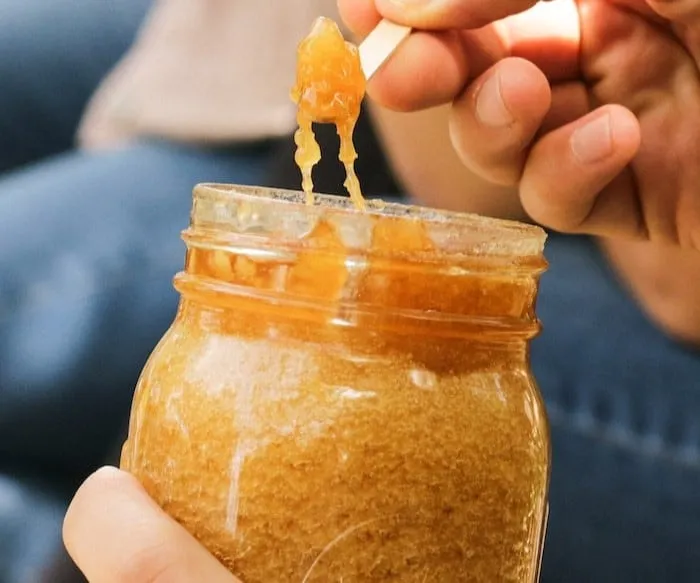
How Can You Tell if Honey Has Gone Bad?
You could also tell that honey has gone bad when it loses its clear golden look and becomes a cloudy yellow in color, and is thicker and grainy in texture. Another sign that it has gone bad is when your liquid gold turns into a darker color and no longer smells and tastes the same. Although this might not cause any health risk, it is just not attractive to consume any longer.
Last tip: Purchase honey from reputable suppliers to be sure of its quality. Always store it properly, and don’t put it in a warm area. That’s one great way to ensure you will enjoy your liquid gold for a long time!
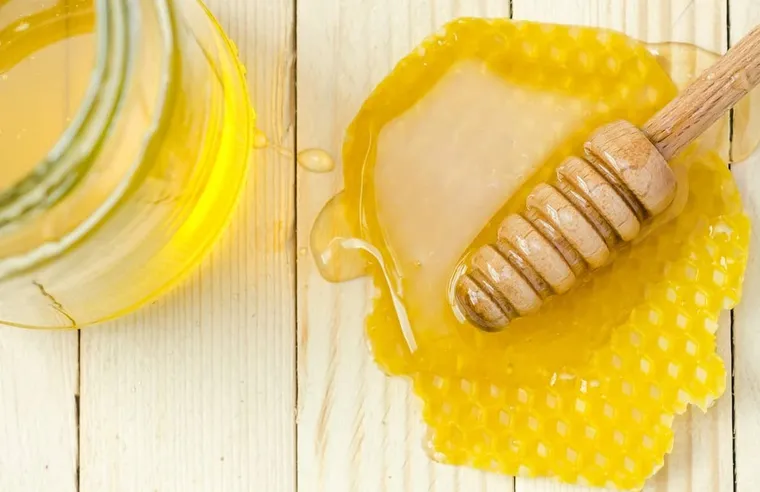


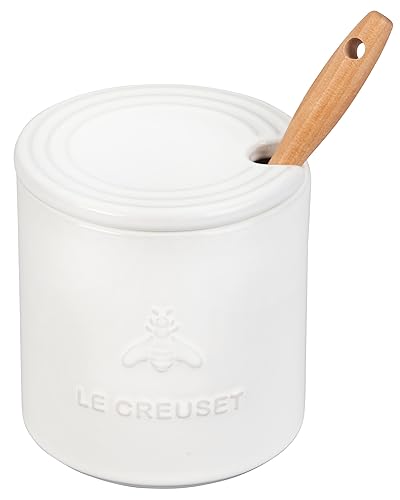
Leave a Comment
Your comment will be reviewed before appearing on the site.